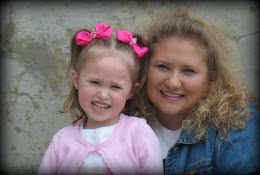Pediatric Dental Surgery: What Parents Need to Know, Pt. 1

Dental surgery is a big deal for any child, but the event becomes even more complex for children with special needs. Guest blogger Amy Stout is here with 5 tips she learned when her daughter’s shark teeth required dental surgery. Tomorrow, she’ll be back with 5 more tips you won’t want to miss.
Dental Surgery for Shark Teeth
I recently found out that my 6-year-old daughter has a condition called shark teeth. Sharks are known for having more than one row of teeth. When this occurs in humans, it is usually because adult teeth are growing in behind baby teeth, and the baby teeth are not getting loose on their own. This is pretty common in children who experience special needs.
To make a long story short, my daughter had to have her 4 front bottom teeth extracted all at once. That was her first losing a tooth experience!!
This mama was no less than devastated. I had spent months planning how our family would welcome the Tooth Fairy and all of the precious traditions that we would start in order to ease the trauma of having wiggly teeth and then losing them—especially for a child who experiences sensory issues. Instead, my daughter ended up having major surgery at our local hospital and all four teeth were extracted. Though she now insists she lost a tooth…and we allow her to believe that! Ha! In the process, I learned a few things that day and about how to prepare for it:
Pediatric Dental Surgery Tip #1
Schedule your child’s procedure to be the first procedure of the day because a child cannot have food or drink after midnight. When kids first get up in the morning, they want to eat or drink. If you are the first procedure, you can tell your child they can have breakfast after seeing the dentist. Or as we communicated it: First see the dentist, then eat breakfast.
Another reason is to avoid delays in the procedure. If others are scheduled ahead of you, it is possible that due to unforeseen complications in their procedures, your child’s surgery might be delayed, meaning a longer time for anxiety to build up and a longer time to wait to eat or drink. Also, it will help if your child is relaxed from just waking from a full night’s sleep. The lack of delay also ensures you will get the anesthesiologist you were originally assigned.
Pediatric Dental Surgery Tip #2
Talk with your doctor and anesthesiologist about the drug Versed to see if it would be an option for your child. This is the same drug that they often give to patients who will go through a colonoscopy. It calmed my daughter down before surgery, making it so much easier to administer anesthesia. Versed is quick acting and helps with the recovery process. My daughter was so calm in the recovery room and when we took her home. My child, who never sleeps on her own, actually found her blanket and napped for 2 hours.
FYI—The drug is a liquid and it must not taste that great, because after they gave it to my daughter, she kept asking for water.
Pediatric Dental Surgery Tip #3
Advocate to be assigned to an anesthesiologist who will allow you to remain with your child until your child is asleep. In our hospital, there were over 30 anesthesiologists, but only 4-5 that allow parents to stay with children until they are asleep. My husband was allowed to suit up in a paper suit, carry my daughter to the operating room and hold her while she blew up the purple balloon. They put a mask over her mouth and nose and when she breathed a purple balloon looking device inflated and deflated. This sedated her so they could then start the anesthesia via IV and she didn’t feel a thing.
Pediatric Dental Surgery Tip #4
Try to distract or re-direct your child from looking in the mirror for at least 24 hours after the procedure. Day 1, the child’s mouth is rather a disturbing sight. The holes are really red and sometimes blood-filled. Day 2 is so much better—the redness and swelling have decreased significantly, and it is much less scary to look at.
Pediatric Dental Surgery Tip #5
The night before surgery, dress your child in what they are going to wear to the hospital the next morning. You can take your child straight from their bed to the car and avoid a lot of questions. Doing so also gets your child, who can’t eat or drink, away from the refrigerator quicker.
Come Back Tomorrow!
Amy will be back tomorrow with 5 more tips. Leave a comment about your child’s dental surgery experience, if you like.
Pediatric Dental Surgery: What Parents Need to Know: Part 2
Do you like what you see at DifferentDream.com? You can receive more great content by subscribing to the quarterly Different Dream newsletter and signing up for the daily RSS feed delivered to your email inbox. You can sign up for the first in the pop-up box and the second at the bottom of this page.

By Amy Stout
Amy Stout is a wife, mother, and free-lance writer. You can visit her website at His Treasured Princess.
Subscribe for Updates from Jolene
Related Posts
An Unexpected Christmas Gift
Sandy Ramsey-Trayvick has learned to see an unexpected Christmas gift in the lessons she’s learned through special needs parenting.
Creating Unique, Disability-Friendly Christmas Traditions
Guest blogger Kristin Faith Evans explains her methods for creating disability friendly Christmas traditions.
Surrendering our Children with Disabilities to God
Guest blogger Kelly Simpson explains how surrendering our children with disabilities to God can bring peace and comfort.






0 Comments